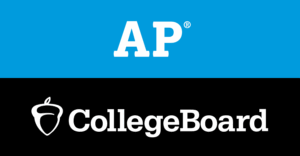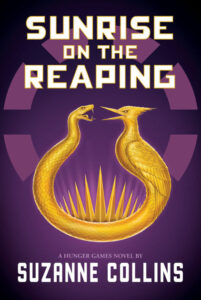By Nancy Zaimi & Ethan Roberts ’25
The COVID-19 pandemic has affected the lives of everyone in America, and the world. From the obvious consequences of death and debilitation from the disease itself, to the resulting economic troubles, the disease has left a brutal scar on all aspects of American life, and even now continues to spread and mutate. One of the most affected groups, students, is also a group that will fundamentally decide the future of the nation for years to come. This article is meant to analyze the effect of COVID-19 in one particular aspect of education: standardized testing. This article is written from the perspective of two 9th grade students, and as such, we do not have experience with certain tests, such as the SATs. In fact, as of the time of writing, we have yet to take our midterm assessments. In this article, we will explore our own feelings about the matter prior to taking the midterms, and discuss our feelings about the 8th grade MCAS test.
Standardized testing is something that is familiar to all students in middle and high school, often a source of stress and worry. However, it can also be an opportunity to demonstrate academic prowess and future potential, especially to colleges and universities. At Beverly High School, we take several different standardized tests. Notably, we take midterms and final exams every school year, and certain grades take other tests such as MCAS and the SATs.
To begin, we will discuss our experience taking the 8th grade MCAS tests last year. One aspect that features most prominently in our memory was the feeling of unfairness at the fact that we were expected to take the MCAS. Our teachers, through no fault of their own, had simply been unable to teach us all the information that we were expected to know on the test. Distinctly, on the science MCAS, essentially everything on the test relating to engineering had not even been touched on. I (Ethan Roberts) had to use knowledge gained from my Engineering Merit Badge in Boy Scouts, and I felt very annoyed because if I hadn’t been lucky enough to decide to take that badge on a whim, I wouldn’t have had the necessary knowledge for the test, and as science is my favorite subject, it would have been very upsetting to do poorly on the test—let alone how it might look on my academic transcript. The English test did not go too poorly, but the math test also included a great amount of things we hadn’t been taught. Our teacher even stated in class that it was unlikely any of us would know the majority of the answers. This was understandably upsetting once again, as math is an incredibly important subject and students need to be able to build off of things they learned in previous years in order to improve, and if we didn’t learn the information that we were expected to by the state, the future could prove grim academically.
As for the upcoming midterms, I think we all collectively feel more stress for them than we did for last year’s MCAS. Last year, it wasn’t necessarily high stakes. With having been remote then in person and at times remote again, it didn’t feel as though the happenings of the outside world accommodated or cared for our learning. Learning didn’t even seem to be much of a priority; we were all too busy trying to stay alive, make sense of the injustices that became so discernible, and learn to cope with the loneliness and unfamiliarity we were all dealing with. It was a hugely unprecedented situation, and one that had not been considered much in the administration, as a pandemic was not even “on the radar” of potential disruptions. This meant that schools were taken almost completely by surprise, and were unable to effectively formulate plans to safely and efficiently educate students in this type of situation. This led to an inevitably subpar learning experience which eventually proved to have left an unerasable stain on our schooling careers.
However, we were recently informed that, in simple terms, midterms this year won’t count. This year’s midterm results will not be factored into our grades unless they improve them. Personally, I think this to be a very wise decision. When we were under the impression that midterms would count, the stress was unimaginable. Students went from last year’s schooling experience to being thrust into a relatively normal year. For students in honors classes especially, where they are expected to know just a bit more, this year has been a true challenge given that last year we were taught as if we were all at a level slightly lower than what we normally would have been at. It has surely been the most abrupt of changes.
With that being said, we understand how difficult it must have been for educators and administrators last year and this year. This type of destructive pandemic is essentially unprecedented in the modern era, and we can not blame the schools for not being able to teach at their full potential. As well, we saw how tirelessly our teachers worked to get us the education they were able to provide, and we know that they truly did do the best job they could under the difficult circumstances. This article isn’t meant to insult the efforts that our school put in to help, only to voice our frustrations with our experiences and offer a perspective into how newly arriving freshmen may feel heading into midterms.


